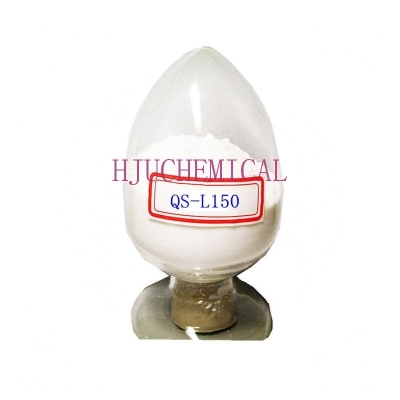-
Categories
-
Pharmaceutical Intermediates
-
Active Pharmaceutical Ingredients
-
Food Additives
- Industrial Coatings
- Agrochemicals
- Dyes and Pigments
- Surfactant
- Flavors and Fragrances
- Chemical Reagents
- Catalyst and Auxiliary
- Natural Products
- Inorganic Chemistry
-
Organic Chemistry
-
Biochemical Engineering
- Analytical Chemistry
-
Cosmetic Ingredient
- Water Treatment Chemical
-
Pharmaceutical Intermediates
Promotion
ECHEMI Mall
Wholesale
Weekly Price
Exhibition
News
-
Trade Service
Recently, a rice noodle shop in Liucheng County, Liuzhou City, Guangxi Province was fined 500 yuan by law enforcement officers of the Market Supervision and Administration Bureau for providing consumers with "disposable soy milk straws" for free
.
In addition, more than 30 stores have also been put on file for investigation
.
In this regard, some netizens expressed their incomprehension and thought it was a trivial matter; some netizens expressed their support, "The plastic restriction order has been in place for a long time, but there are still many places that provide free plastic products
.
"
Restricting single-use plastic straws, considered by some to be a fuss, actually reflects a lack of understanding of the dangers of plastic
.
According to a report released by the Organization for Economic Cooperation and Development on June 3, 2022, since the 1950s, humans have produced about 8.
3 billion tons of plastic products, of which 60% have been landfilled, incinerated or directly dumped into rivers, lakes and seas
.
By 2060, the global annual output of plastic products will reach 1.
2 billion tons, nearly three times the current level; if the recycling rate is not improved, the amount of plastic waste will also nearly triple by then
.
Plastic pollution has become one of the most serious environmental challenges in the 21st century, posing a serious threat to the environment and human health
.
According to a study by Newcastle University commissioned by the World Wildlife Fund (WWF), the world now consumes nearly 2,000 microplastics per week, the weight of a credit card, and drinking water is the main source
.
Research on the human and biological hazards of microplastics is ongoing and is currently known to have potential hazards to the cardiovascular, digestive and respiratory systems
.
Plastic pollution not only harms human beings, but also brings disaster to other creatures
.
Statistics show that plastic waste kills more than 1 million seabirds and more than 100,000 marine mammals every year
.
Plastic restriction can not only reduce the harm of microplastics to people and life on earth, but also help alleviate global warming
.
The annual greenhouse gas emissions associated with plastic products are about 2 billion tons, accounting for about 3% of human greenhouse gas emissions
.
This amount will double by 2060 if there are no targets to limit plastics
.
Therefore, countries around the world are taking action to ban plastics and plastics.
For example, India banned the use, sale, import, production and processing of many types of single-use plastic products nationwide on July 1 this year, of which the first stage covers 19 categories.
Plastic products, including plastic cups, straws, cotton swabs, etc.
; temporarily exempted plastic products include plastic bags and multi-layer packaging films that do not exceed the specified thickness
.
Some people think that imposing a fine on plastic straws in the catering industry is a big deal, because they think that small plastic straws will not have much impact on people and ecology, but it is not
.
According to CCTV Finance, in 2019, the cumulative output of plastic products in the country was 81.
84 million tons, of which nearly 30,000 tons of plastic straws, or about 46 billion, were used per capita
.
What's more, the tiny plastic straws only last a few minutes, but can degrade for as long as 500 years
.
More importantly, disposable plastic straws are small in size and difficult to recycle after use, and will directly generate a lot of plastic waste, including microplastics
.
It is these tiny plastic items that contribute to environmental pollution
.
According to the 2020 No.
80 document of the National Development and Reform Commission, the use of non-degradable disposable plastic straws will be banned in the catering industry nationwide by the end of 2020
.
By the end of 2022, the use of non-degradable disposable plastic tableware will be prohibited for dine-in services in built-up areas and scenic spots in the county
.
By 2025, the consumption intensity of non-degradable disposable plastic tableware in the field of food delivery in cities above the prefecture level will drop by 30%
.
Restricting plastic straws is beneficial in any way, so penalizing businesses that provide free single-use plastic straws is not a trivial matter
.
Because of this, some people think that punishing only 500 yuan can not achieve the result of setting an example, but should be punished according to Article 106 of the newly revised "Law on the Prevention and Control of Environmental Pollution by Solid Waste"
.
The regulations pointed out that "if the state's regulations on prohibiting and restricting the use of disposable plastic products such as non-degradable plastic bags are not complied with, or the use of disposable plastic products such as plastic bags is not reported in accordance with relevant national regulations, the local people at or above the county level shall The government departments in charge of commerce and postal services shall order corrections and impose a fine of not less than 10,000 yuan but not more than 100,000 yuan
.
”
Of course, bans and fines are only one aspect of reducing plastic pollution, and alternatives are needed on the other
.
Now, a winding bamboo straw has been developed.
A special slicing machine is used to prepare sliced thin bamboo slices with a thickness of 0.
25±0.
05mm, and then heat extraction, ultrasonic, ozone and other technologies are used to synergistically remove color and mildew.
After splicing the width and length, winding and gluing in the same direction along the bamboo fiber direction to form a continuous cylinder, after cutting and beveling according to the preset spacing, the winding bamboo straw can be prepared
.
The emergence and expansion of production of similar alternatives is conducive to reducing the use of plastic products, thereby achieving ecological protection
.







